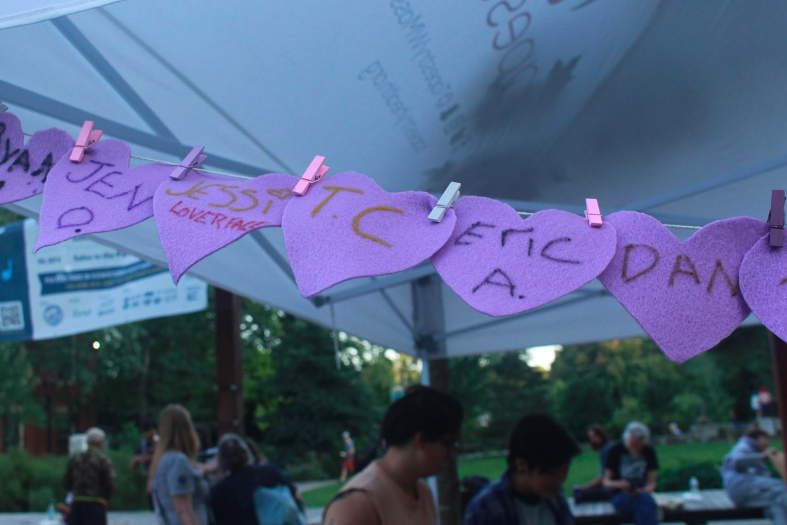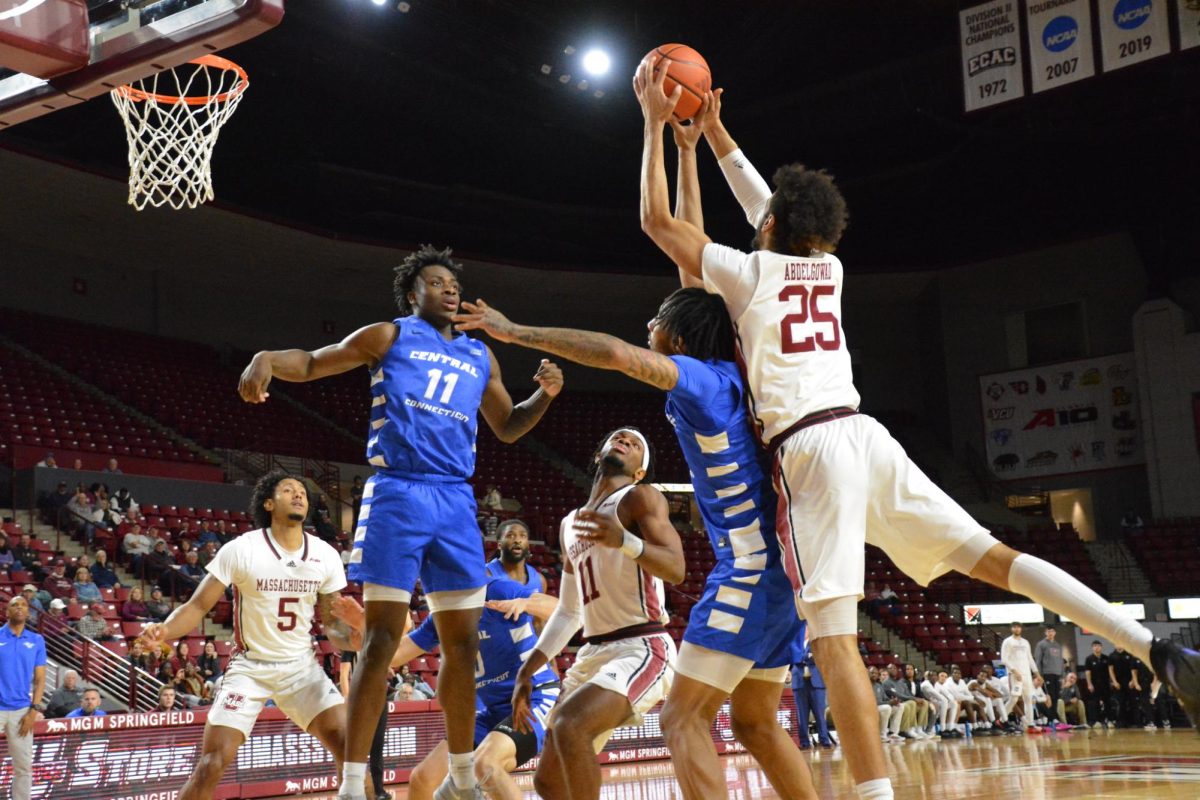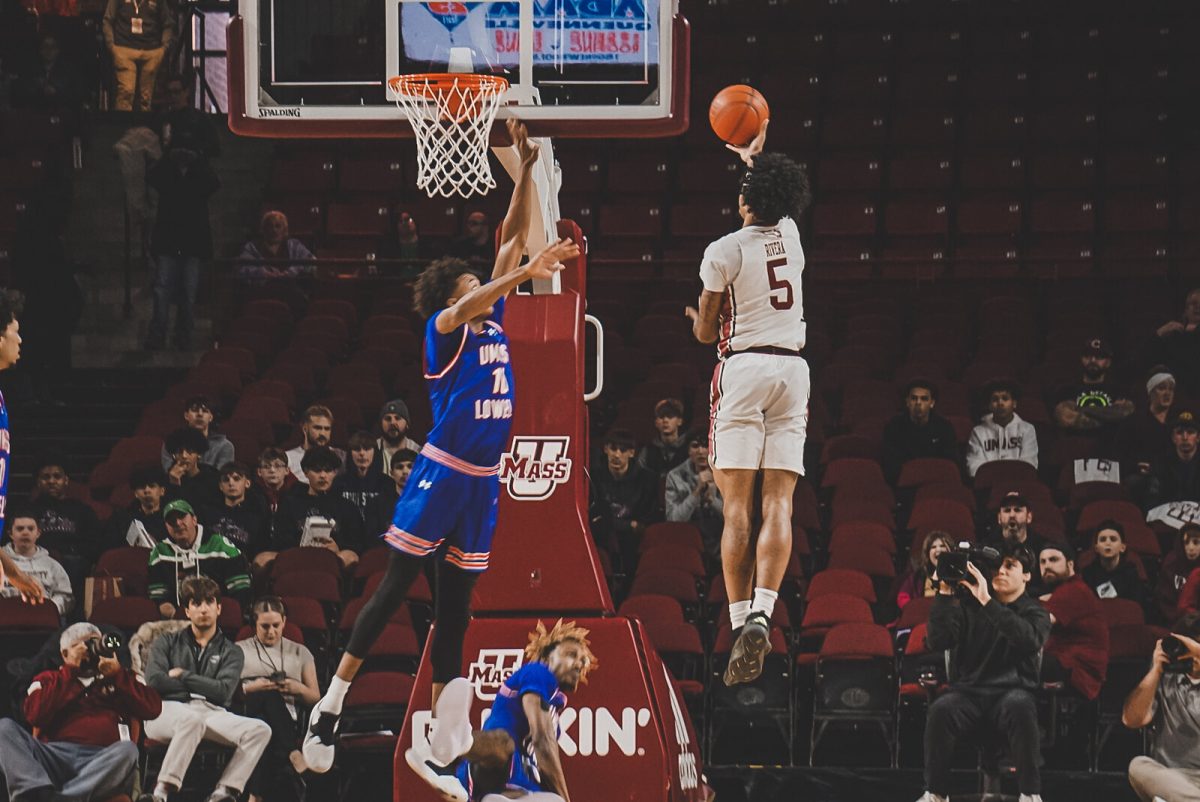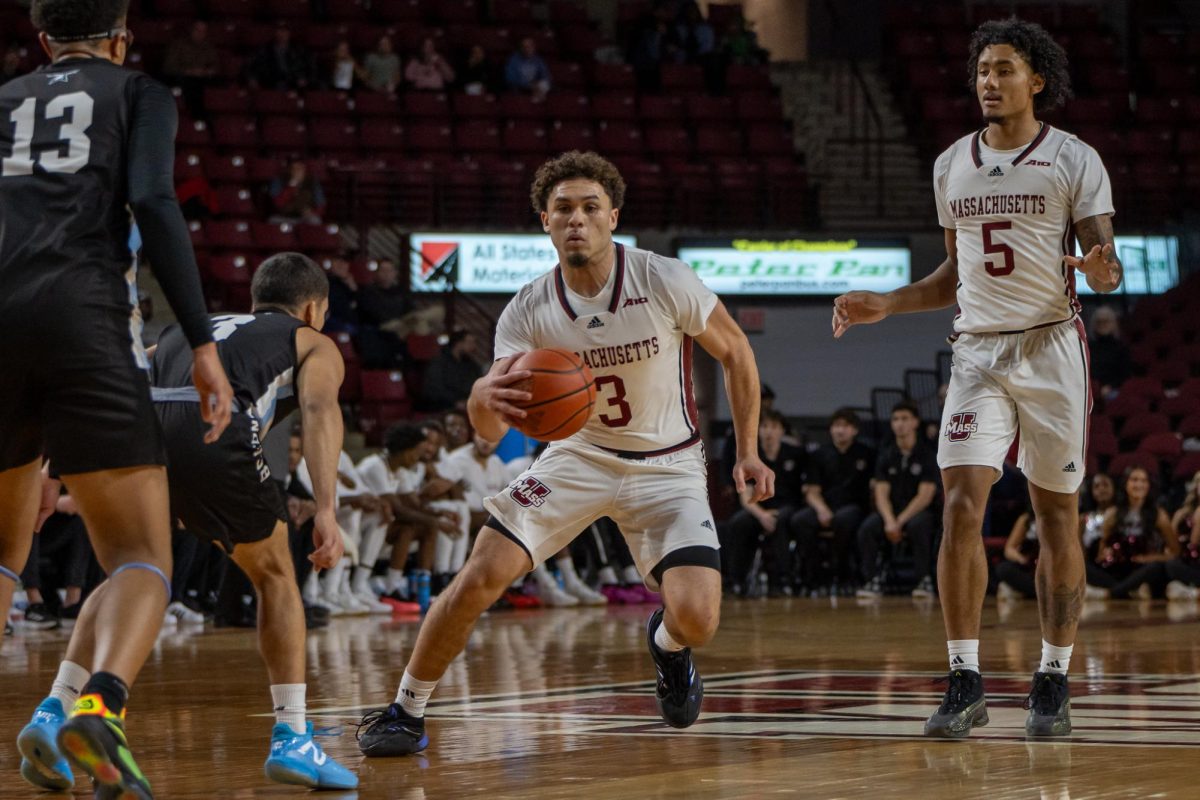During the last week of August, nearly 100 community members gathered in Northampton’s Pulaski Park to commemorate International Overdose Awareness Day. The gathering occurred right before the start of National Recovery Month in September.
The event featured a variety of organizations including Tapestry Health, Northampton Recovery Center and Hampshire HOPE, an opioid prevention coalition run out of Northampton’s Department of Health and Human Services (DHHS).
“It’s nice to have this awareness but it also means that we continue to deal with a tragic amount of loss through overdoses,” Liz Whynott, director of Tapestry Health, said.
Opioids are a class of drugs that include heroin, fentanyl and prescription medications. They are the most commonly abused drugs. According to the Centers for Disease Control and Prevention, nearly 280,000 Americans have died from an opioid overdose between 1999-2021.
International Overdose Awareness Day started in Australia in 2001 to reduce the stigma around opioid abuse.
In response to national and state opioid overdose increases, the organization Hampshire HOPE formed out of DHHS to mitigate the overdose impact on the community, according to Hampshire HOPE Director Taylor McAndrew.
“The coalition really wanted to pull people together and create space for voices who don’t always get to be listened to, or elevated in the way that they should be,” McAndrew said.
Tapestry Health provides harm reduction supplies such as Narcan, the brand name for FDA-approved medication Naloxone, which can reverse an opioid overdose. Stores like Walmart and CVS have started to sell the drug as an over-the-counter medication.
“It’s important to understand that anyone can carry Narcan, as you never know who may suffer an overdose,” Katy Lessard, the harm reduction program manager at Tapestry Health, said.
According to McAndrew, the theme for this year’s commemoration was to “recognize those who go unseen.” Throughout the event, people wrote names on purple felt hearts and paper bags to represent the names of people they’ve lost.
A series of speakers included Northampton Mayor Gina-Louise Sciarra, state Rep. Lindsay Sabadosa and DHHS Commissioner Meredith O’Leary.
Sciarra said overdose deaths in Hampshire County dropped by 16 percent in 2022, but that progress must continue.
“What we’re doing to address the opioid crisis is working to some degree, but is not enough,” Sciarra said. “The data underscores that it is not time for complacency, and that we still have very important work to do.”
Sciarra also acknowledged the installation of two outdoor cabinets that hold Naloxone. The outdoor water-proof boxes will provide 24-hour access to the drug, free of cost. Sciarra said she hopes the visibility of the cabinets will reduce stigma and encourage conversations about addiction.
“I just want everyone who is here, who has also gone through hell to know that my heart is with you,” Sabadosa said, noting that she has a brother in recovery.
Sabadosa added that in the past, her brother had negative experiences with hospitals. “He will avoid going to a lot of these places because he’s treated like he’s less than human,” she said. “That is something that we need to stop because it pushes people out of their recovery, and it makes them scared to keep going.”
Dan Harper, a senior software engineer at the University of Massachusetts, shared that he lost his daughter Eliza to an overdose on her 26th birthday. She struggled with addiction for five years.
“I want to share that she was beautiful, that she was creative, that she was funny, that she was all these things that a dad wants for his daughter,” Harper said. “Then I started thinking, what I really want people to feel is proud of her.”
Harper added that he is working on a project called “Eliza’s Watch,” a piece of wearable technology that sounds an alarm if the person wearing it doesn’t move for a minute and a half.
“This is something that we have to change, and we need to do it by talking about this, by sharing our stories about what it’s like to be the family members, to be the loved ones or to even be that person,” Sabadosa said. “We can’t put all that burden on the people who are trying to maintain recovery every single day, so we as a community have to do better.”
Olivia Capriotti can reached at [email protected] or followed on X at @CapriottiOlivia.




















